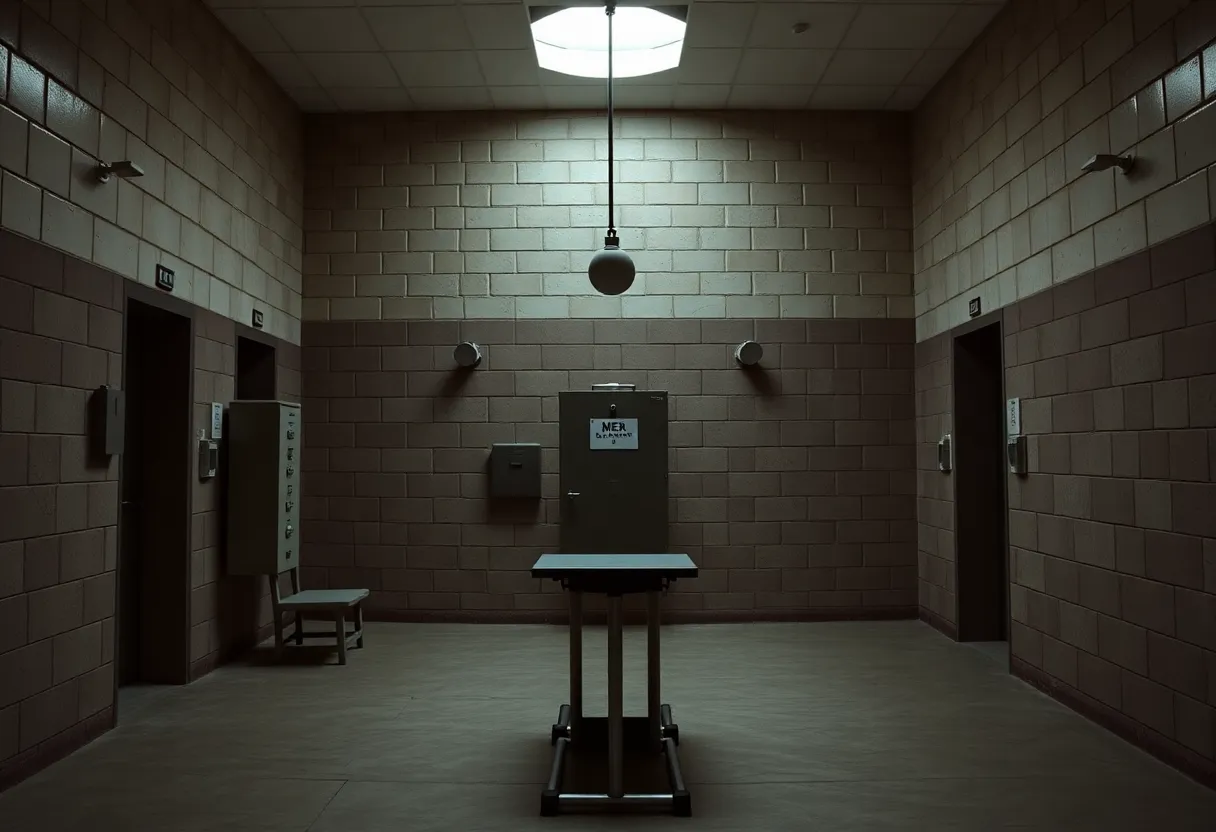News Summary
Byron Black was executed in Tennessee following a long-standing conviction for the murders of his girlfriend and her daughters. Controversy surrounded the use of his implanted heart defibrillator, which advocates feared could cause suffering during the lethal injection procedure. Despite a plea from legal representatives citing Black’s health issues, execution proceeded, reigniting debates about the death penalty’s ethical implications, especially for those with severe medical conditions.
Tennessee Executes Byron Black Amid Controversy Over Heart Defibrillator and Intellectual Disability Claims
On August 5, 2025, Tennessee carried out the execution of Byron Black, a 69-year-old man, through lethal injection at the Riverbend Maximum Security Institution in Nashville. The execution followed a long-standing conviction for the tragic murders of his girlfriend, Angela Clay, and her two young daughters, LaToya and Lakeisha, back in 1988.
What made this execution particularly controversial was the ongoing legal disputes surrounding Black’s implanted heart defibrillator, which medical professionals debated whether to deactivate prior to the execution. Advocates for Black raised concerns that the device could administer shocks during the lethal injection procedure, potentially causing him inhumane suffering.
During the execution, Black reportedly experienced physical discomfort, sharing with his spiritual advisor that he was in pain. Witnesses noted that he sighed and groaned, and he was pronounced dead at 10:43 a.m., just 12 minutes after the lethal injection began. This drew heavy criticism from various organizations who opposed the death penalty, especially under his medical conditions.
Black’s legal team argued vehemently against his execution, claiming that he suffered from multiple health issues, including dementia, brain damage, kidney failure, and congestive heart failure. They also attempted to assert that Black was intellectually disabled and thus ineligible for the death penalty. However, prior court rulings had dismissed these claims, and even the U.S. Supreme Court and Governor Bill Lee chose not to intervene.
Leading up to his execution, Black’s final meal was a unique ensemble, consisting of pizza with mushrooms and sausage, donuts, and butter pecan ice cream—a combination that surely added a personal touch to his last hours.
The case of Byron Black has reignited the ongoing national debate about the death penalty, shining a light on the treatment of individuals with medical devices and mental impairments. The issue gained even more attention as protests took place outside the prison, advocating against the capital punishment system and raising ethical questions about executing those with serious health issues.
As Black’s execution marked the second one in Tennessee for 2025—following a five-year hiatus due to various procedural complications and the effects of COVID-19—it has been noted that this year alone had seen over 28 executions across the United States. A significant uptick in executions has left many advocates questioning the fairness and morality of such actions.
Continuing through this difficult chapter, Linette Bell, Angela Clay’s sister, expressed that the execution provided some form of closure for her family after nearly 37 years of grief and unanswered questions. Still, the internal conflict surrounding the ethics of the death penalty remains, especially when considering the healthcare status of those being executed.
FAQ Section
What were the circumstances surrounding Byron Black’s execution?
Byron Black was executed on August 5, 2025, by lethal injection at 69 years old. He was convicted of the 1988 murders of his girlfriend and her two daughters. Legal disputes arose over the treatment of his implanted heart defibrillator, which was controversial prior to his execution.
What health issues did Byron Black have?
Byron Black suffered from multiple health problems, including dementia, brain damage, kidney failure, and congestive heart failure, and required a wheelchair for mobility.
What was Black’s final meal before execution?
Black’s last meal included pizza with mushrooms and sausage, donuts, and butter pecan ice cream.
What has been the wider impact of Black’s execution?
Black’s execution has sparked national debate over the death penalty, particularly relating to the treatment of inmates with medical devices and mental disabilities. Protests against the execution highlighted concerns for the morality of capital punishment in such cases.
Key Features of Byron Black’s Case
| Feature | Details |
|---|---|
| Age at Execution | 69 years |
| Date of Execution | August 5, 2025 |
| Conviction | Murder of Angela Clay and her daughters |
| Health Issues | Dementia, brain damage, kidney failure, congestive heart failure |
| Final Meal | Pizza, donuts, butter pecan ice cream |
| Legal Controversies | Implantable defibrillator and claims of intellectual disability |
Deeper Dive: News & Info About This Topic
- The New York Times: Tennessee Execution of Byron Black
- The Tennessean: Byron Black’s Execution – Medical Controversies
- USA Today: Byron Black’s Controversial Execution
- NBC News: Execution of Byron Black Amid Medical Issues
- WSMV: Tennessee Executes Byron Black
- Wikipedia: Death Penalty in the United States
- Google Search: Byron Black Execution
- Google Scholar: Byron Black Execution
- Encyclopedia Britannica: Death Penalty
- Google News: Byron Black Execution

Author: STAFF HERE PROVIDENCE WRITER
The PROVIDENCE STAFF WRITER represents the experienced team at HEREProvidence.com, your go-to source for actionable local news and information in Providence, Providence County, and beyond. Specializing in "news you can use," we cover essential topics like product reviews for personal and business needs, local business directories, politics, real estate trends, neighborhood insights, and state news affecting the area—with deep expertise drawn from years of dedicated reporting and strong community input, including local press releases and business updates. We deliver top reporting on high-value events such as WaterFire, Rhode Island International Film Festival, and Rhode Island Comic Con. Our coverage extends to key organizations like the Greater Providence Chamber of Commerce and Providence Warwick Convention & Visitors Bureau, plus leading businesses in finance and manufacturing that power the local economy such as Citizens Financial Group and Textron. As part of the broader HERE network, we provide comprehensive, credible insights into Rhode Island's dynamic landscape.





